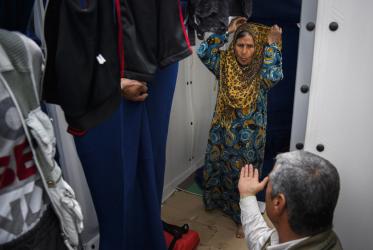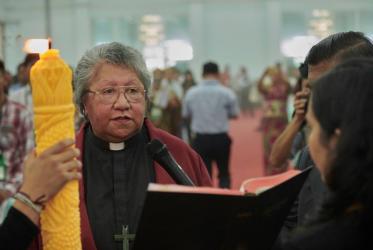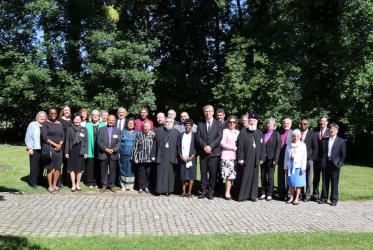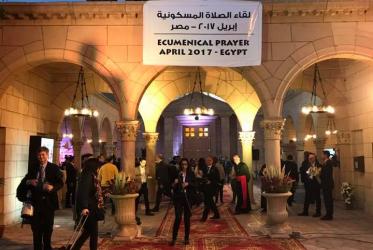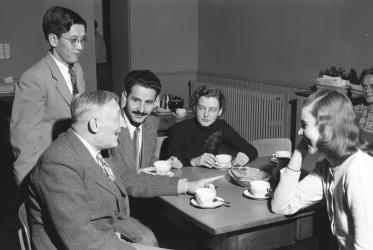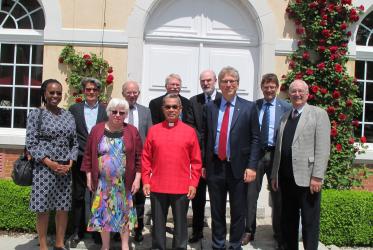Displaying 41 - 60 of 110
08 February 2018
Bishop Helga - diaconal apostle
22 December 2017
G20 summit: call to pray for peace in Hamburg
07 July 2017
WCC Executive Committee to focus on unity
08 June 2017
Bossey anniversary commemorates 70 years of heartfelt dialogue
28 September 2016
Hielke Wolters: Apostle of mission strategies
01 August 2016
Panel discussion fields ideas on European identity
26 April 2016
